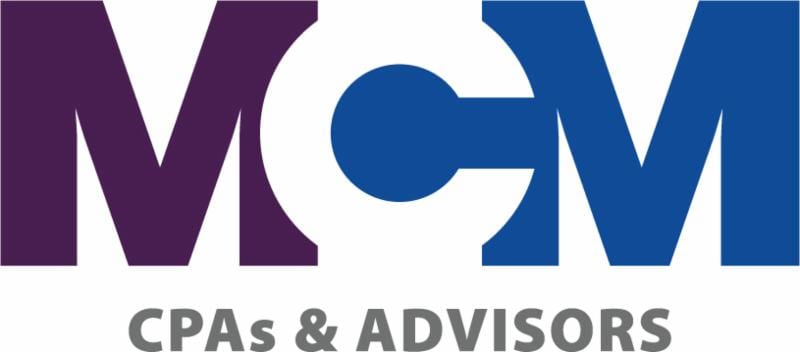IRS fact sheet aids in determining reasonable compensation
By MCM CPAs & Advisors Partner Scott Herman, CPA
The potential for an S corporation to reduce its payroll tax liability by minimizing compensation to its shareholder-employees continues to be a big concern for the IRS and lawmakers.
The immense potential loss of employment taxes is well documented. Additionally, the tax reform has provided an unintended incentive for business owners of S corporations to adjust compensation to gain more benefit from the 20 percent qualified business income deduction. Such companies can expect increased scrutiny from the IRS regarding their compensation of shareholder-employees.

It has become very common in recent IRS audits of automobile dealerships structured as S corporations for auditors to determine whether the corporations have underpaid their shareholder-employees. An S corporation shareholder who performs more than minor services for the corporation will be its employee for tax purposes as well as a shareholder.
In effect, an active S corporation shareholder wears at least two hats: as a shareholder/owner of the corporation, and as an employee of that corporation. This allows for savings on Social Security and Medicare taxes because such taxes need not be paid on distributions of profits from the corporation and its shareholders. Also, lower compensation levels reduce shareholder wages subject to ordinary income tax rates. The reduced compensation levels increase the overall business eligible for the 20 percent qualified business income deduction. Thus, to the extent they pay themselves shareholder distributions instead of employee salary, S corporation shareholder-employees can save big money on payroll and income taxes.
The IRS position is that an S corporation must pay reasonable employee compensation (subject to employment taxes) to a shareholder-employee in return for the services the employee provides before a distribution (not subject to employment taxes) may be given to the shareholder-employee.
To date, there are no specific guidelines for reasonable compensation in the IRS Code or Regulations. IN the absence of IRS-specific guidance on ascertaining when compensation is reasonable or even when compensation is unreasonable, IRS auditors seem to be creating their own standards in the field.
Disputes between the IRS and taxpayers have required courts to regularly determine whether an S corporation has paid reasonable compensation to its shareholders. Courts have consistently held that S corporation shareholders who provide more than minor services to their corporation and receive or are entitled to receive payment are employees whose compensation is subject to federal employment taxes.
Shareholder-employees of S corporations do not need to become compensation experts, but they should know that this is a major hot point in IRS audits. If the IRS finds that the compensation paid to shareholder-employee is unreasonably low, it can reclassify some of or all distributions received as wages. It can also levy sizeable penalties.
To aid in determining reasonable compensation, the IRS published a “Fact Sheet” that summarizes the factors to consider:
- Training and experience
- Duties and responsibilities
- Time and effort devoted to business
- Dividend history
- Payments to non-shareholder employees
- Timing and manner of paying bonuses to key people
- What comparable businesses pay for similar services
- Compensation agreements
- The use of a formula to determine compensation
Thus, as a general rule, it is advisable to have the S corporation pay its shareholder-employees at least some salary, which can be on the low end of the reasonableness scale.
How low can it go and still be considered reasonable? There are no precise guidelines, but unusually low salaries, particularly in conjunction with higher corporate income and distributions, will likely be subject to scrutiny. IRS officials have stated that they make the determination on a case-by-case basis.
If you would like more information on this issue or other dealership matters, please feel free to contact MCM Partner, Scott Herman, CPA at scott.herman@mcmpa.com.


